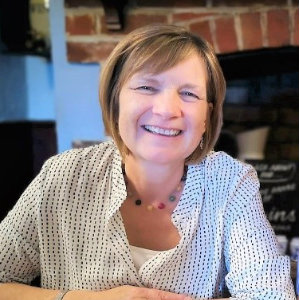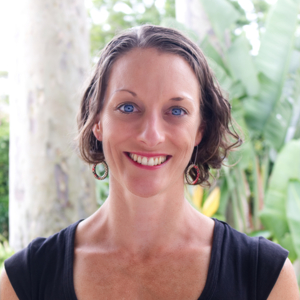It is widely acknowledged that face to face teaching using role-play, feedback & re-rehearsal is the gold standard for clinical communication skills (CCS) teaching. However, the Covid-19 pandemic has prompted health professional educators to explore innovative online approaches to address ongoing learners’ needs. For many teachers this is a wholly new approach and they may not be sure how to adapt previous in-person sessions to a virtual context. Others may have started experimenting with different online methods and are looking to identify ways to consolidate progress and identify next steps.
EACH: International Association of Communication in Healthcare is offering a series of three 3-hour workshops providing the opportunity to explore the challenges and rewards of teaching clinical communication skills online. Each workshop in this new series covers different aspects of teaching and learning and can either be attended as a separate event or as a complete set of three workshops.
EACH Member
per course
£35
EACH Member
for 3 courses
£75
Non-Member
per course
£50
Non Member
for 3 courses
£102
| Wednesday 10 March 2021 | 08:00 – 11:00 GMT | Workshop 1a: ‘Brave New World’ |
| Wednesday10 March 2021 | 14:00 – 17:00 GMT | Workshop 1b: ‘Brave New World’ |
| Wednesday 28 April 2021 | 14:00 – 17:00 GMT | Workshop 2: ‘Building your Toolkit’ |
| Wednesday 26 May | 14:00 – 17:00 GMT | Workshop 3: ‘Train the Trainers’ – Understanding the needs of Learners, Teachers and Simulated Patients involved in online teaching |
Workshop 1: ‘Brave New World’
The first workshop in the EACH online series focuses on the core evidenced based components of experiential CCS education and how these can be safely and effectively transferred to teaching online using video conferencing platforms.
This workshop will include demonstrations, experiential exercises and discussion of the following core teaching methods:
- Building group dynamics in a virtual classroom
- Facilitating safe and effective role-play with Simulated Patients online
- Maximising the impact of feedback online
Participants will have the chance to consider how online tools and techniques can be used to enhance online experiential clinical communication skills instruction in their own institution. There will also be a valuable opportunity to network with your peers in other institutions whilst sharing your own experience of online learning, whether you are just considering the move to online delivery or have been using these approaches for some time.
Please note, during these sessions we will be delivering training using Zoom however many of the principles and approaches are transferable to different platforms.
Workshop 2: ‘Building your Toolkit’
Exploring additional approaches for online teaching.
This workshop will explore complementary approaches to role-play with simulated patients, the mainstay of experiential teaching. The approaches covered in this workshop are aimed at offering variety and increasing student engagement in the learning process.
This workshop will include demonstrations, experiential exercises and discussions of the following aspects of communication skills teaching:
-Using pre-recorded video clips to teach clinical communication skills online
- Peer role-play as a teaching technique
- Experiential exercises to vary learning
- Using synchronous experiential online learning time most effectively
Workshop 3: ‘Train the Trainers’ – Understanding the needs of Learners, Teachers and Simulated patients involved in online teaching
This final workshop of the series aims to equip teachers with the necessary skills to train and support others to deliver online clinical communication skills teaching.
This workshop will share recent survey results and shared experience to consider how tutors, students and simulated patients can be best prepared in order to maximise the impact of the virtual clinical communication skills classroom. This workshop will include:
- The Student Perspective -What do we know so far? What aspects of online clinical communication skills teaching are valued by students? What helps them to engage and what switches them off?
- The Teacher’s Perspective – How can I prepare others to teach clinical communication skills online?
- How do I begin to develop virtual sessions? Considering the required changes to Teaching plans, Faculty training and Role-play scenarios etc.
- The Patient’s Perspective – Giving a credible performance, the challenges of role- from the ‘waist up’?
Facilitators
Sandra Winterburn
Academic Lead for the Clinical Communication Curriculum, Norwich Medical School
Sandra works as an Associate Professor at Norwich Medical School where she is the Academic Lead for the Clinical Communication Curriculum. She has a background in nursing and has been actively involved in teaching clinician-patient communication to a range of professional groups, at both undergraduate and postgraduate level, for more than 15 years.
Sandra is Co-Chair of the teaching committee (tEACH) within EACH and has a particular interest in:
- Small group experiential teaching methods (including online delivery)
- Train the Trainers initiatives
- Curriculum Design for Healthcare communication
Marcy Rosenbaum
University of Iowa Carver College of Medicine, USA
Marcy Rosenbaum, PhD, is Professor of Family Medicine at the University of Iowa Carver College of Medicine in the US. She is currently the President of EACH and former co-chair of tEACH, the teaching committee of EACH. She has conducted research on and taught about clinical communication and medical education for over 30 years with a particular emphasis on workplace based communication learning.
Laura Blackburn
Occupational Health Physician, Lecturer and Coach, East of England
Dr Laura Blackburn is an Occupational Health Physician, Lecturer and Coach based in the East of England. With a strong interest in learner engagement and the use of technology in teaching, the last 12 months have proved the opportunity to accelerate the development of creative and innovative approaches to meet learner’s changing needs. One such opportunity has been in working with the Norwich Medical School Consultations Skills Team in the delivery of undergraduate consultation skills training and also in developing and delivering postgraduates training nationally.
Although a coaching approach weaves throughout Laura’s practice as a Clinician and Educator, a particular focus is coaching professionals looking to change careers or flourish during periods of challenge and transition. This includes working with national organisations in establishing coaching schemes and meeting their development, delivery and training needs.
Kim Taylor
Simulated Patient, Clinical Communication Skills Training
Kim Taylor’s work as a simulated patient in the field of Clinical Communication Skills training has led to workshops and courses with doctors and healthcare professionals throughout the UK and Internationally from Norway to Sri Lanka, Russia to South Africa.
At undergraduate level, Kim works in experiential sessions with medical students at the University of Cambridge.
With a special interest in the development of training materials, Kim is currently consulting on a number of projects for the University including a review of the simulated patient training programme and the creation of resources to support the Clinical School’s online experiential CCS sessions.
Conor Gilligan
University of Newcastle, Australia
Conor is Associate Professor in Health Behaviour Science at the University of Newcastle, and leads the Discipline of Health Behaviour Science in designing and implementing the clinical communication skills curriculum in the Joint Medical Program (Universities of Newcastle and New England). Conor facilitates small group learning with undergraduate students across all stages of training, and is passionate about contributing to the development of a workforce of patient centred clinicians who communicate effectively with patients and with each other, as well as about upskilling clinicians to contribute to students’ learning in their clinical supervision roles. Conor is an active teacher, researcher, and curriculum developer in this space.





